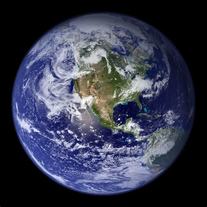 There has been much discussion lately about colonizing Mars. SpaceX owner Elon Musk expects to initiate Mars spacecraft test flights as early next year and plans to land cargo spaceships on the Red Planet in 2022, with a manned landing targeted for 2024. Mars One aims for a permanent manned landing in 2032. One has to be in awe of the vision, science, and courage it takes to plan and participate in these initiatives. Perhaps the desire to settle Mars is motivated by core characteristics of human nature, our innate curiosity impelling us to voyage ever onward to faraway reaches. From the time hunter gatherers traversed ice bridges across the Bering Strait and vast bodies of water on wood-carved canoes, humans have used their ingenuity to venture forth to distance lands. Even our origin stories, from the Navajo creation myth Upward Movement and Emergence Way to Old Testament desert wanderings in search of the promised land describe similar outward migrations. Perhaps colonizing Mars is the latest chapter in this narrative. Yet, some of what is motivating consideration of Mars colonization appears to be an evolving sense of dissatisfaction with the condition of our planet, a sense of unease about political and resource stability and with this concern about the future survival of humankind. Two hundred years ago there were less than 1 billion people on our planet. Today there are more than 7 billion, with the population expected to exceed 10 billion in another 30 years. Population growth combined with the impact of climate change and resource depletion have prompted concerns about a dystopian future in which human life on Earth is at risk. Perhaps this is not dissimilar to what motivated our ancestors to migrate as well. But the fact is that we have a pretty great planet right here. Colonization of Mars or other potentially habitable reaches of our galaxy requires addressing complex challenges regarding gravitational differences, oxygen and water production, food production, energy production and storage, building habitats, and countless other challenges. While human ingenuity could surmount these challenges let's be clear: Earth, our home, offers plentiful water, oxygen, and natural resources for food, clothing, and shelter, as well as for transportation, energy, and medicine, and if well-tended by us can support us for future generations. At the same time that we look to colonize Mars, how can we tend to our current home in a way that recognizes how much we are part of it and dependent on it, and in a way that secures it for future generations? Our ancestors understood this, even if they too responded to yearnings to explore faraway reaches. Long ago, people lived in close relation to the Earth, highly attuned to this symbiosis. They understood that being human means being part of the natural world, having a sense of belonging and recognizing that the Earth nurtures. As Robert Wolff writes in Original Wisdom: Stories of an Ancient Way of Knowing, [Aboriginals] lived off the land or the ocean. They did not have to rely on the outside for any of their needs. They could find all the food they needed to sustain themselves, they could find or make material for shelter and clothing. They carved canoes and made blowpipes, they rolled a powerfully strong rope from the fibers of coconut husks. And beyond what they could find and make in their environment, they did not need anything, nor did they want anything more. They lived life. Life did not live them, as it does us. Most of us have ventured far from this way of life. We no longer live in tightly bound communities. We no longer live directly off the land, nor do we eschew material possessions, regarded by nomadic people as a burden to carry. Yet the truth remains that everything around us, ourselves included, derives from the Earth. We are nearly 70% water, and beyond that a combination of elements with a magical spark of life. Our food, our clothing, our shelter all derive from earth. The concrete underfoot in our cities, the metal comprising our cars, the elements that comprise the computer I am writing on and you are reading on, our sources of energy--all derive from the earth and the systems in which it exists. On this Earth Day, take a moment to think about the threads that connect us to our ancient lineage, to ways of life closely tied to the Earth and its resources, and think about how the core of that lineage has not changed. While perhaps one day humankind will colonize Mars, appreciate the wonder and beauty of planet Earth and the many ways it nurtures us.
0 Comments
Leave a Reply. |
About this Blog
Hi! I'm Nancy Kopans, founder of Urban Edge Forest Therapy. Join me on an adventure to discover creative ways to connect with nature in your daily life, ways that are inspired by urban surroundings that can reveal unexpected beauty, with the potential to ignite a sense of wonder. Archives
April 2023
Categories
All
|

 RSS Feed
RSS Feed